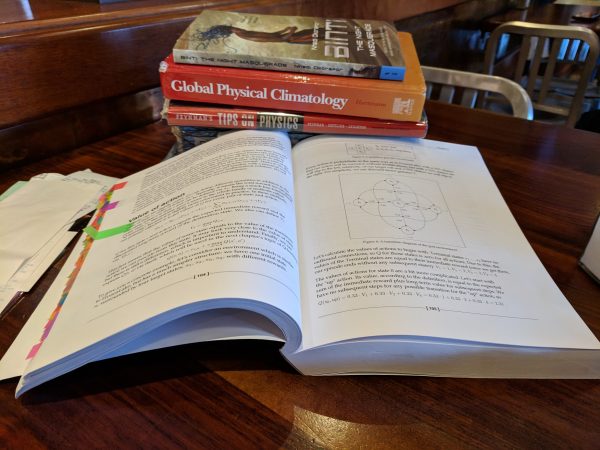
Our world is big. Big, and complicated, filled with many more things than any one person can know. We rely on each other to find out things beyond our individual capacities and to share them so we can succeed as a species: there’s water over the next hill, hard red berries are poisonous, and the man in the trading village called Honest Sam is not to be trusted.
To survive, we must constantly take information, just as we must eat to live. But just like eating, consuming information indiscriminately can make us sick. Even when we eat good food, we must clean our teeth and got to the bathroom – and bad food should be avoided. In the same way, we have to digest information to make it useful, we need to discard information that’s no longer relevant, and we need to avoid misinformation so we don’t pick up false beliefs. We need habits of information hygiene.
Whenever you listen to someone, you absorb some of their thought process and make it your own. You can’t help it: that the purpose of language, and that’s what understanding someone means. The downside is your brain is a mess of different overlapping modules all working together, and not all of them can distinguish between what’s logically true and false. This means learning about the beliefs of someone you violently disagree with can make you start to believe in them, even if you consciously think they’re wrong. One acquaintance I knew started studying a religion with the intent of exposing it. He thought it was a cult, and his opinion about that never changed. But at one point, he found himself starting to believe what he read, even though, then and now, he found their beliefs logically ridiculous.
This doesn’t mean we need to shut out information from people we disagree with – but it does mean we can’t uncritically accept information from people we agree with. You are the easiest person for yourself to fool: we have a cognitive flaw called confirmation bias which makes us more willing to accept information that confirms our prior beliefs rather than ones that deny it. Another flaw called cognitive dissonance makes us want to actively resolve conflicts between our beliefs and new information, leading to a rush of relief when they are reconciled; combined with confirmation bias, people’s beliefs can actually be strengthened by contradictory information.
So, as an exercise in information hygiene for those involved in one of those charged political conversations that dominate our modern landscape, try this. Take one piece of information that you’ve gotten from a trusted source, and ask yourself: how might this be wrong? Take one piece of information from an untrusted source, and ask yourself, how might this be right? Then take it one step further: research those chinks in your armor, or those sparks of light in your opponent’s darkness, and see if you can find evidence pro or con. Try to keep an open mind: no-one’s asking you to actually change your mind, just to see if you can tell whether the situation is actually as black and white as you thought.
-the Centaur
Pictured: the book pile, containing some books I’m reading to answer a skeptical friend’s questions, and other books for my own interest.